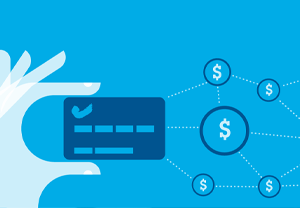College students are graduating with a lack of financial skills, at least according to a survey by the American Institute of CPAs.
The survey states only 39% of college students have a monthly budget and almost 50% said that at some point in the past twelve months they had less than $100 in their checking/savings account.
While financial wellness may not be a priority for many new graduates, it should be, as poor financial decisions in your 20s could affect you decades later.
Here’s 5 financial tips for new college graduates:
1. Learn to negotiate
Negotiating a starting salary or a raise is hands down one of the most effective ways to put yourself in a good financial situation after graduating college. According to salary.com, 18 percent of people never negotiate their salary and another 44 percent only negotiate on occasion.
Just how much money are you missing out on by not negotiating? According to one survey, you may miss out on as much as $500,000 by the age of 50.
Need help negotiating? Use these tips from Forbes.
2. Avoid debt
Once you are hired for your first job with your first “real” salary, you may be inclined to load up on debt by purchasing a car, a home and that 75 inch TV you’ve always wanted. Avoid this if at all possible. Instead, focus on building your savings.
If you must purchase a vehicle or a home, contact Communication Federal Credit Union to check and apply to see what you qualify for.
3. Start saving for retirement
When you’re in your early 20s, retirement is the last thing on your mind, but saving early will help ensure your financial security after you retire. Not saving early means you’ll have to put that much more back later on, and even then it will be hard to make up the money you didn’t save early.
In the beginning, save what you can afford. Whether it’s $50 a month or $100, this will add up over time. If your employer offers to match your retirement, make sure to take advantage of it. It’s FREE money.
Additionally, if you receive an annual raise, contribute part of the raise to your 401k.
4. Making saving a habit
Not only should you be saving for retirement, you should also be saving for emergencies. At Communication Federal Credit Union you can automate your savings by setting up automatic transfers from your checking to your savings account.
Experts recommend having 3-6 months worth of expenses in an emergency savings account. If you set up automatic transfers from CFCU, you won’t be tempted to spend the money.
Additionally, setting up a savings account for holidays or vacations is an easy way to save for these occasions.
5. Pay down student loans
Just as you should avoid accruing new debt, if you have student loans, pay down the debt by paying more than the monthly payment. Paying as little as $25 extra a month towards your student loans could take a year or two off of your loan and save you hundreds in interest payments.
Additionally, check to see if you can refinance your student loans at a lower rate and, if you have multiple loans, consolidate those loans.
Conclusion:
The bottom line is spend less than you make, save for emergencies and for the future and pay down your debt as quickly as possible.
Is there something Communication Federal Credit Union can help you with? Post below or send us an email at [email protected].




